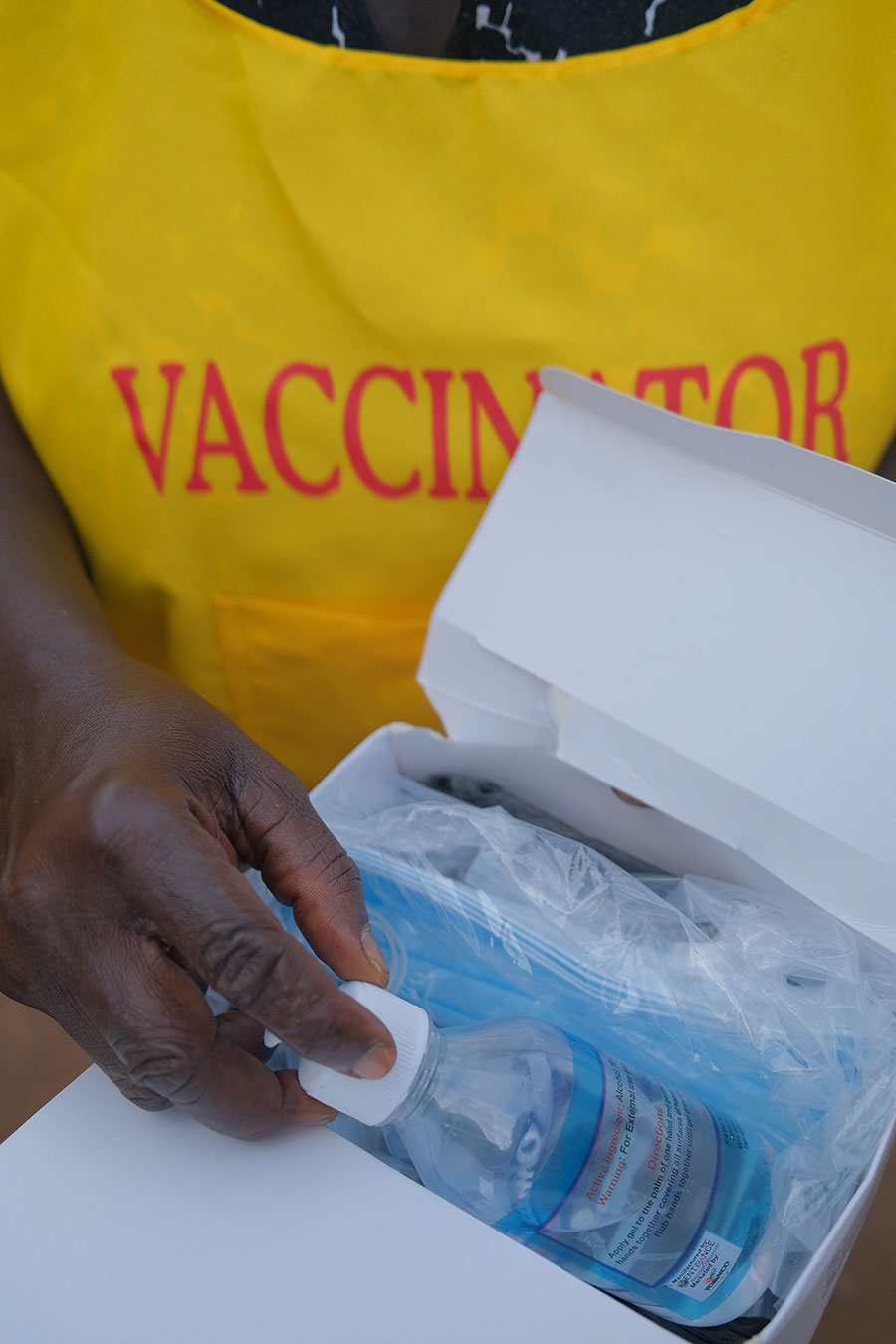Ghana revives its polio immunisation drive
In September 2022, Ghana completed the first of two four-day national immunisation drives against polio, following the confirmation of two acute flaccid paralysis cases in the country.
- 30 September 2022
- 3 min read
- by Nanama Boatemaa Acheampong

“I have been a vaccinator since my first child was three years old. She’s 15 now, and I still do this job.”
Grace Agyarewaa is a vaccine officer in her late 40s. She considers her work her contribution to her society, adding, “This isn’t the kind of work you do for monetary gain, because it pays very little. I think all children should receive vaccinations so they can grow up healthy and strong, and I’m happy that I can contribute my time to ensuring it happens.”
“We were all scared of catching this new disease; we didn’t want strangers near us, but I still saw it as my job to go out and vaccinate children.”
On 1 September, when the polio vaccination began, Grace was given six packs of the new nOPV2 vaccine, each of which contained 50 doses. Her daily target was 300 children under the age of five years.
She says, “I vaccinate in the Apaapa - Burkina area here in Labadi, and each day of the drive I visited a different location. Each day, I was also given a different number of packs.”

Credit: Edinam Awo Amewode
Meeting the target was challenging. “Ever since I started this work, I have received both positive and negative receptions from parents and caregivers. Some are eager to have their children vaccinated, while others are either apprehensive or flat out refuse our services.”
In these instances, regional supervisors are brought in to speak to the parents, in the hope that they can be persuaded.
“I’ve had instances where people have come to find me to immunise their children when they hear that I’m in their area, which makes me so happy,” she says.
On vaccination days, Grace is accompanied by two others: one to keep a tally of the number of children vaccinated and another to mark the children’s thumbs with indelible ink.
“For the first round, we marked their left thumbs. For the second round coming up in October, we’ll mark their right thumbs.”
Have you read
From 2008 - 2018, Ghana enjoyed polio-free status, but in 2019 there was an outbreak of circulating vaccine-derived poliovirus type 2 (cVDPV2). Between December 2019 and February 2020, Ghana’s Health Ministry, aided by WHO, Gavi and UNICEF, sprang into action to immunise 4.5 million at-risk children in eight of the country’s 16 regions.
This was, however, interrupted by the onset of the COVID-19 pandemic, which brought immunisation efforts to a halt.
“It was a strange time,” Grace laments. “We were all scared of catching this new disease; we didn’t want strangers near us, but I still saw it as my job to go out and vaccinate children.”
Grace, along with other vaccinators, was trained and provided with personal protection equipment and hand sanitisers to ensure protection against the COVID-19 infection.
“It’s important that we vaccinate as many children as we can against polio. It can’t be cured, but we can prevent it with vaccines. This is what I tell parents – that it’s better to be safe than sorry,” Grace says.
The polio immunisation campaign, which is supported by WHO and Global Polio Eradication Initiative (GPEI) partners, is expected to vaccinate over six million children under five years of age, in two rounds, with the first one already completed. The second round is slated for 6 to 9 October 2022.








